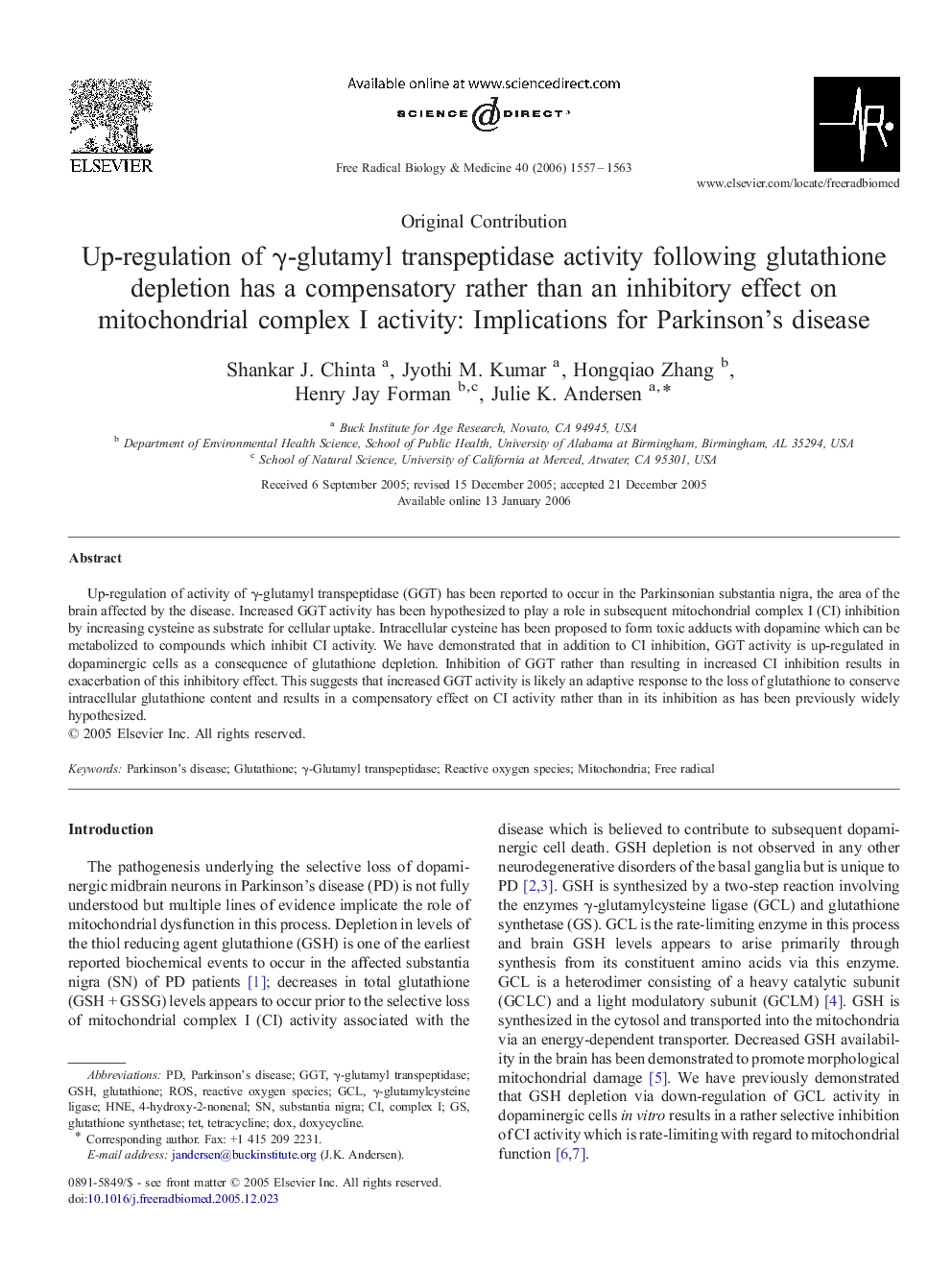| Article ID | Journal | Published Year | Pages | File Type |
|---|---|---|---|---|
| 1911415 | Free Radical Biology and Medicine | 2006 | 7 Pages |
Up-regulation of activity of γ-glutamyl transpeptidase (GGT) has been reported to occur in the Parkinsonian substantia nigra, the area of the brain affected by the disease. Increased GGT activity has been hypothesized to play a role in subsequent mitochondrial complex I (CI) inhibition by increasing cysteine as substrate for cellular uptake. Intracellular cysteine has been proposed to form toxic adducts with dopamine which can be metabolized to compounds which inhibit CI activity. We have demonstrated that in addition to CI inhibition, GGT activity is up-regulated in dopaminergic cells as a consequence of glutathione depletion. Inhibition of GGT rather than resulting in increased CI inhibition results in exacerbation of this inhibitory effect. This suggests that increased GGT activity is likely an adaptive response to the loss of glutathione to conserve intracellular glutathione content and results in a compensatory effect on CI activity rather than in its inhibition as has been previously widely hypothesized.
